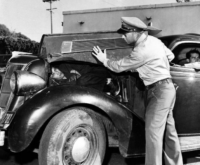By JAMES MacPHERSON
Associated Press
BISMARCK, N.D. (AP) _ North Dakota’s unprecedented oil bonanza has boosted salaries throughout the state, though the male-dominated, high-paying energy industry also is widening the wage gap between men and women, the state’s demographer said.
Census figures show the median earnings of North Dakota men who worked full time year-round climbed to $49,231 last year, up from $46,225 in 2012. The median earnings for North Dakota women increased to $34,549 last year, from $34,438.
The average salary in the oil and natural gas industry was more than $111,000 last year.
State census office manager Kevin Iverson said the high-paying jobs in western North Dakota’s oil patch have attracted more men than women. Data show that there are more than 25,000 men working in oil, gas and mining jobs in North Dakota compared with just 2,000 women.
Driven by its robust economy, North Dakota’s median household income rose to $55,759 last year, up from $54,647 in 2012. The state’s median household income has risen more than 10 percent since 2008, census figures show.
North Dakota is leading the nation in population growth and experiencing its highest population ever with more than 720,000 residents, according to the U.S. Census Bureau. North Dakota’s strong economy led by its booming oil patch in the western part of the state has attracted thousands of new residents in the past few years.
Michael Ziesch, a manager for the state’s employment agency, Job Service North Dakota in Bismarck, said the state has 27,000 more jobs than takers and the lowest unemployment rate in the nation, at 2.4 percent. About one-third of the unfilled jobs are listed in the state’s oil-producing counties, he said.
North Dakota added about 23,000 residents in 2013, most of whom were men between the ages of 18 to 34. Iverson said that data mirrors the ages of most oil workers.
“It’s younger and it’s male,” Iverson said of the oil industry.
He said the state also has a myriad career choices beyond its oil-producing region. Those who can’t find a job in North Dakota “either can’t work or don’t want to work,” Iverson said.










